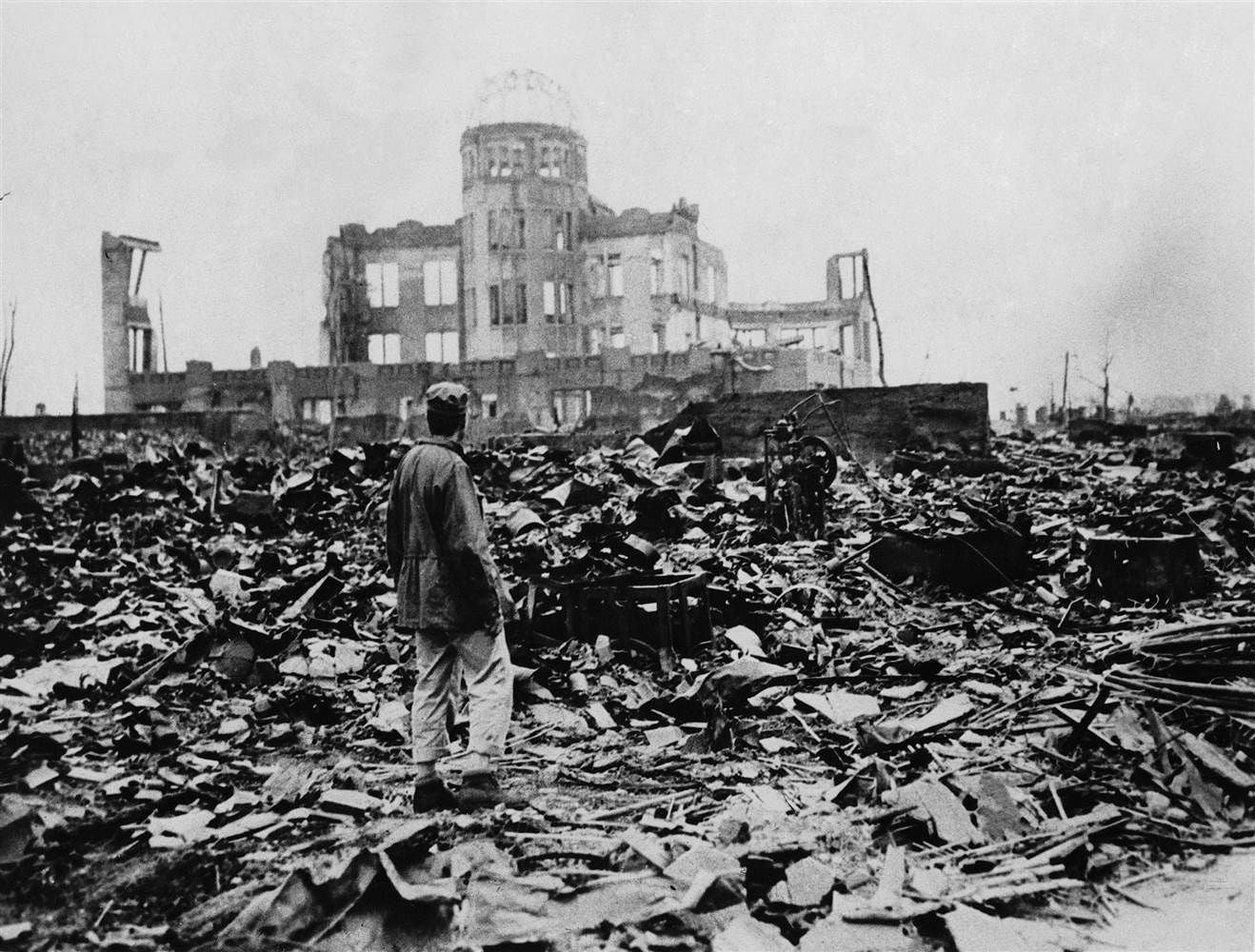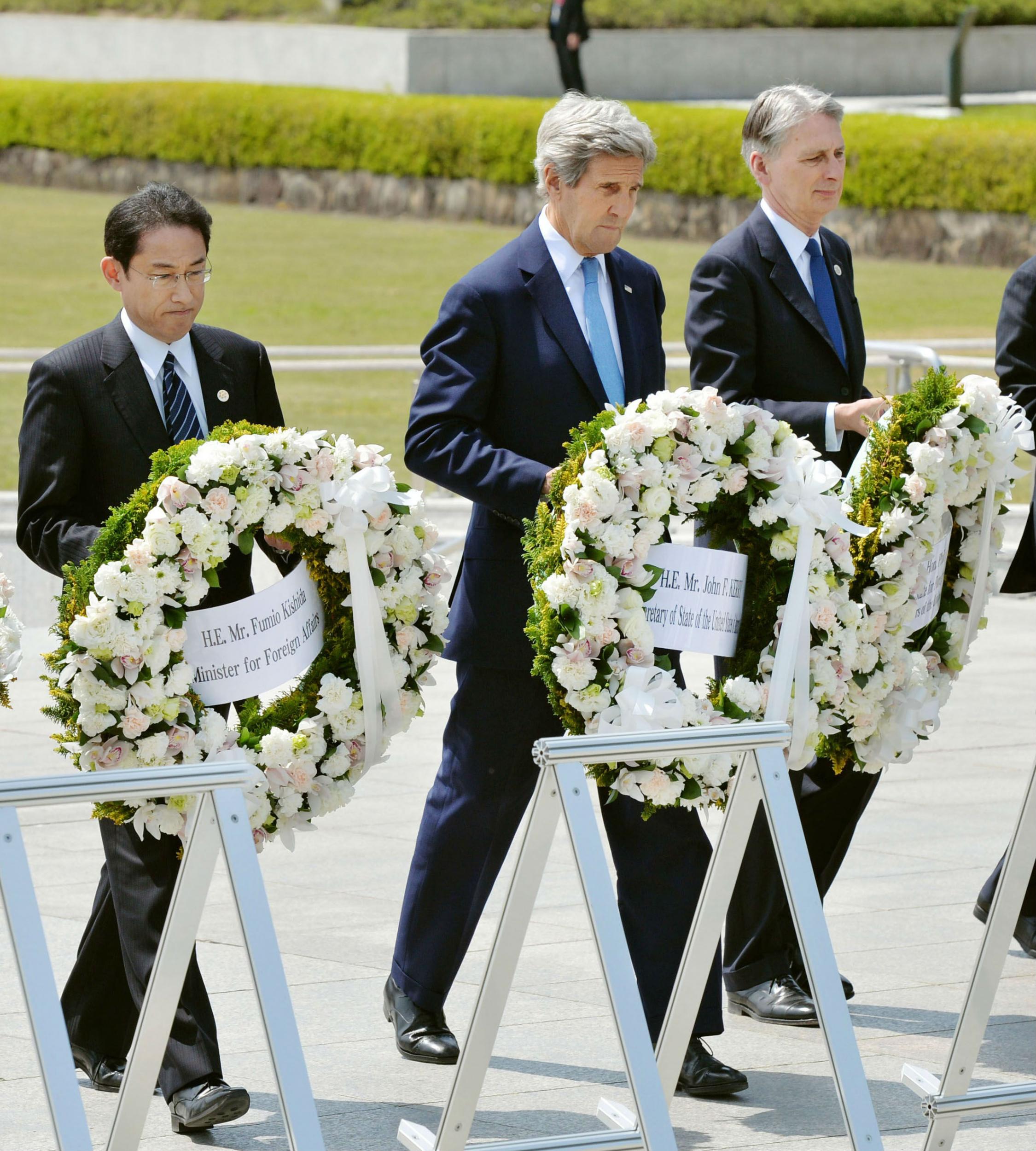Barack Obama to visit Hiroshima - first US president to do so since 1945 nuclear attack
Mr Obama said in a 2009 trip that he wanted to visit the cities devasted by nuclear weapons

Your support helps us to tell the story
From reproductive rights to climate change to Big Tech, The Independent is on the ground when the story is developing. Whether it's investigating the financials of Elon Musk's pro-Trump PAC or producing our latest documentary, 'The A Word', which shines a light on the American women fighting for reproductive rights, we know how important it is to parse out the facts from the messaging.
At such a critical moment in US history, we need reporters on the ground. Your donation allows us to keep sending journalists to speak to both sides of the story.
The Independent is trusted by Americans across the entire political spectrum. And unlike many other quality news outlets, we choose not to lock Americans out of our reporting and analysis with paywalls. We believe quality journalism should be available to everyone, paid for by those who can afford it.
Your support makes all the difference.With less than a year in office, President Barack Obama is continuing to make nothing less than history.
Two months after he became the first sitting US president in a century to visit Cuba, the White House has announced that he will visit Hiroshima, the first American leader to do so since the Japanese city was turned to rubble in 1945 by a US nuclear bomb.
Mr Obama and Japan Prime Minister Shinzo Abe will make the May 27 visit “to highlight his continued commitment to pursuing the peace and security of a world without nuclear weapons,” White House spokesman Josh Earnest said in a statement. It will be Mr Obama's fourth visit to Japan.

When President Obama first visited Japan in November 2009, he said he hoped he would one day visit both Hiroshima and Nagasaki, where the United States dropped atomic bombs during the very final days of World War II.
“The memories of Hiroshima and Nagasaki are etched in the minds of the world, and I would be honored to have the opportunity to visit those cities at some point during my presidency,” Mr Obama said at the time.
At least 140,000 people were killed, most of them civilians, when the city became synonymous with the first wartime use of a nuclear weapon on August 9 1945. Three days later, the US dropped a second atomic device on the city of Nagasaki and within a week Japan had surrendered to Allied forces.
Mr Obama’s visit will follow that of Secretary of State John Kerry, who was among foreign ministers from G7 nations who took part in a ceremony at a peace park in the city in April. Britain’s Philip Hammond also took part in the event.
Mr Kerry said his visit had been a “gut-wrenching” reminder of the need to get rid of nuclear weapons.
“It reminds everybody of the extraordinary complexity of choices in war and of what war does to people, to communities, to countries, to the world,” he said.
A White House advisor, Ben Rhodes, wrote on Tuesday that Mr Obama will reflect on took place in the city 70 years ago. He said he would not revisit the use of an atomic bomb but “will offer a forward-looking vision focused on our shared future”.
"To be sure, the United States will be eternally proud of our civilian leaders and the men and women of our armed forces who served in World War II for their sacrifice at a time of maximum peril to our country and our world," he said. "Their cause was just, and we owe them a tremendous debt of gratitude, which the President will again commemorate shortly after the visit on Memorial Day. This visit will offer an opportunity to honor the memory of all innocents who were lost during the war."
The Associated Press said that the White House has ruled out the possibility that Obama will apologise for the bombing of Hiroshima.
On Tuesday, speaking to reporters in Tokyo, the Japanese Prime Minister said he hoped to turn "this into an opportunity for the US and Japan to together pay tribute to the memories of the victims” of the nuclear bombing.
“President Obama visiting Hiroshima and expressing toward the world the reality of the impact of nuclear radiation will contribute greatly to establishing a world without nuclear arms,” he said, according to Reuters.
Join our commenting forum
Join thought-provoking conversations, follow other Independent readers and see their replies
Comments